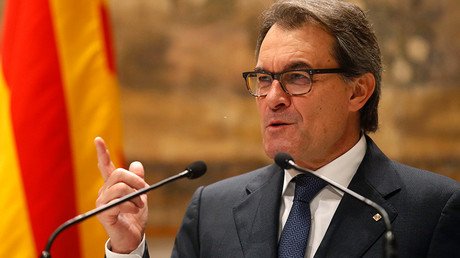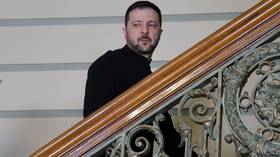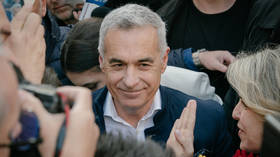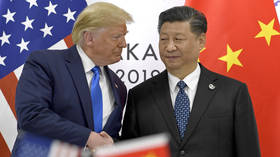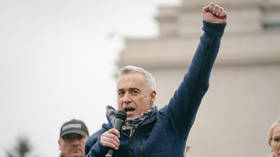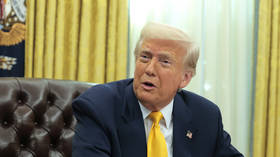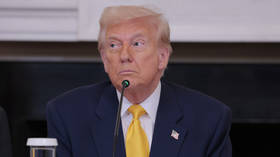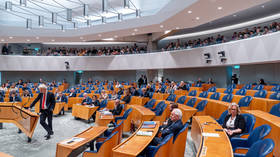Catalonia determined to press on with Spain independence bid with or without Madrid's consent
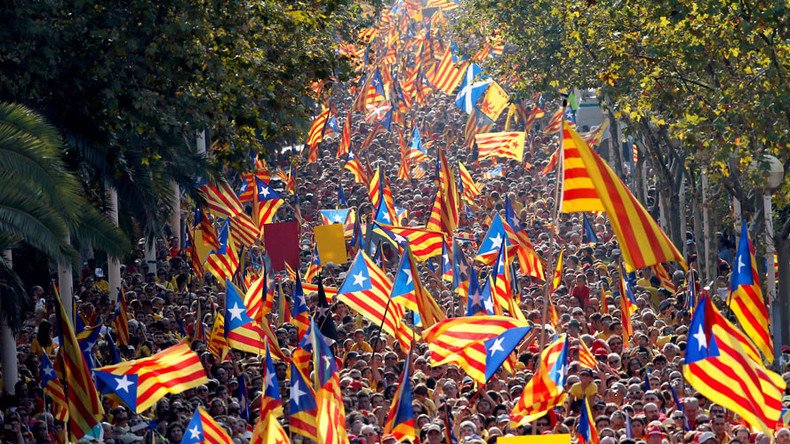
Catalonia says it is preparing to seek independence with or without Madrid’s backing. The region’s government says it would prefer to conduct cordial negotiations about a split, but that the lack of response from the Spanish capital is forcing its hand.
On Wednesday, the Catalan parliament supported the conclusions of a commission created to study the process of the region’s secession from Spain, El Mundo reports.
Among other things, the document stipulates a national referendum that is to decide the fate of Catalonia.
Those protesting against the vote included three members of the Parliament’s Bureau, the governing body of the Catalan legislature, José María Espejo (Ciutadans), David Perez (PSC), and Joan Josep Nuet (CQP).
The vote, which goes against a recent constitutional court ruling, has been branded a “real blow to democracy” by the opposition groups.
Speaking exclusively to the Guardian, the president of Catalonia's parliament, Carme Forcadell, and foreign affairs minister Raul Romeva said the stance taken by Madrid has left the region with no other choice.
“The [Spanish state] has left us feeling that we just don’t have an alternative,” Romeva told the Guardian. “We have always said that we would have preferred a Scottish-type scenario, where we could negotiate with the state and hold a coordinated and democratic referendum. We keep talking to Madrid, but all we get back from them is an echo.”
Catalonia has public opinion on its side, with a July 22 survey from the region’s official pollster showing that 47.7 percent of Catalans want independence. A total of 42.4 percent said they would prefer the region to remain part of Spain.
#Catalonia poll: the younger the people is, higher independence preference #CEOpic.twitter.com/tfmbTbcguD
— Ramon Tremosa (@ramontremosa) July 22, 2016
In December, the Spanish Constitutional Court blocked a resolution from Catalonia’s parliament calling for a secession process from Spain. However, Artur Mas - who at the time was Catalonia’s president - said the process had been annulled legally, but not politically.
"Legally, it is clear that the Catalan parliament's resolution is now annulled," Mas told Cadena Ser radio in December. "But politically, it is not, because the will of the parliament cannot be annulled and the will of the parliament reflects the will and the ideas of a significant part of the Catalonian population."
In June, Spain’s Constitutional Court recommended that Mas and two other officials face trial for overstepping their authority after they held a mock Catalan independence referendum in 2014, despite the court placing a ban on the vote taking place.
Romeva says that the Spanish government has two options at present. The first is to accept that Catalan independence is a distinct reality. The second is to simply carry on with what it has been doing - trying to use the courts and various legal processes to stop the movement.
Over 80 percent of those who voted in the mock referendum wanted Catalonia to gain independence from Spain.
“Every action they (Madrid) take serves only to rearm us and give us greater legitimacy for what we’re doing,” Romeva said.
Romeva also believes that Spain has a democratic responsibility to adhere to the will of the Catalan people. In April, acting Spanish Prime Minister Mariano Rajoy held talks with pro-separatist leaders in Catalonia, including new Catalan President Carles Puigdemont.
However, the two sides failed to find a consensus, with Rajoy saying “we will continue to defend Spanish unity.”
“The Spanish government uses the question of legality a lot,” Romeva said, speaking to the Guardian. “But legality is an instrument; it needs to adapt to reality and to democratic will, and not the other way round. People around the world need to understand that what we’re doing is fundamentally legitimate and is not illegal."
DETAILS: #Catalonia MPs approve plan to set up road map for independence from Spain https://t.co/FyxDY9KQm5pic.twitter.com/StRYiZwa7z
— RT (@RT_com) November 9, 2015
Meanwhile, politicians from Catalonia have pointed to Madrid attempting to use underhanded tactics when dealing with the region. Forcadell, president of Catalonia's parliament, mentioned that Spanish interior minister Jorge Fernandez Diaz and the head of Catalonia’s anti-fraud office, Daniel de Alfonso, were caught allegedly discussing what investigations could be opened against Catalan separatist politicians.
“How can they say that when the interior minister, who’s meant to defend the interests of all citizens, is caught conspiring to find evidence against citizens solely because they think differently? How can absolutely nothing come of that? We don’t understand it,” Forcadell told the Guardian.
